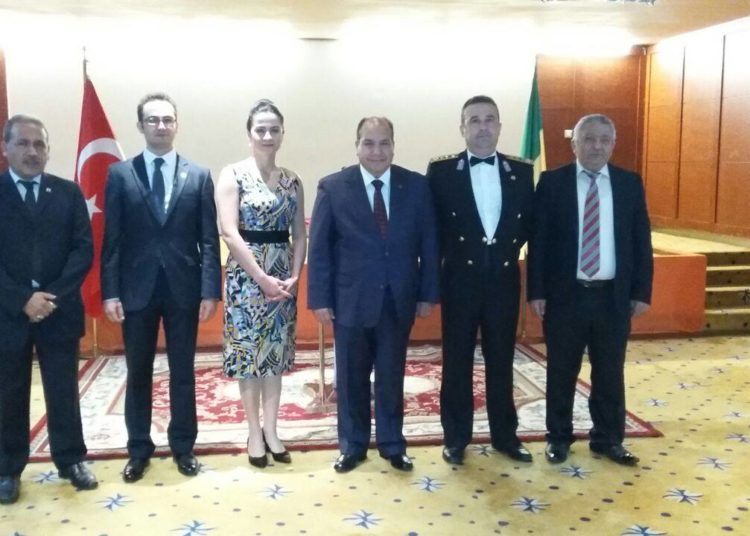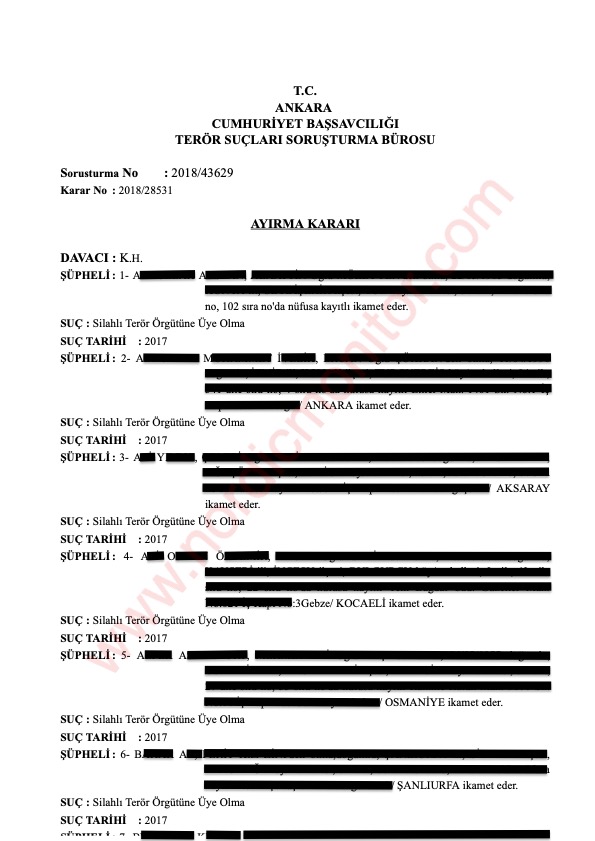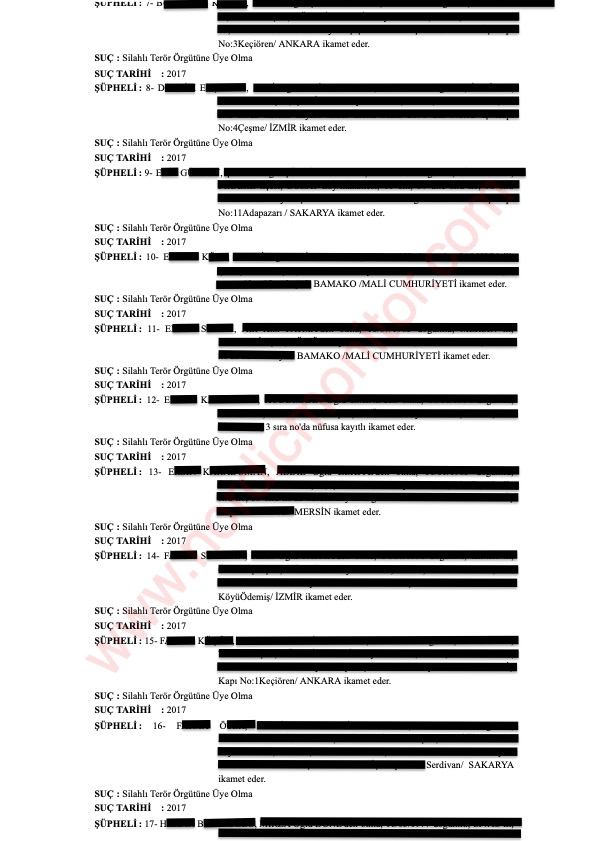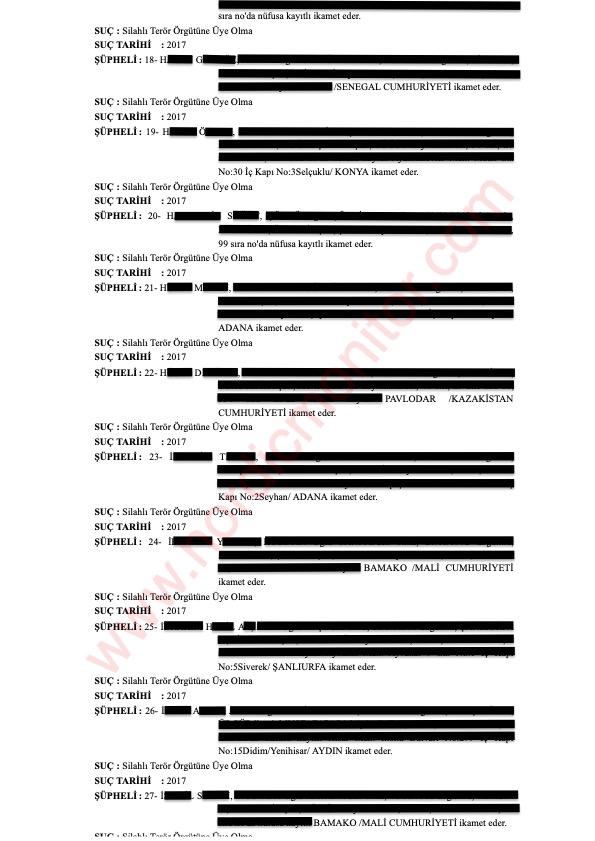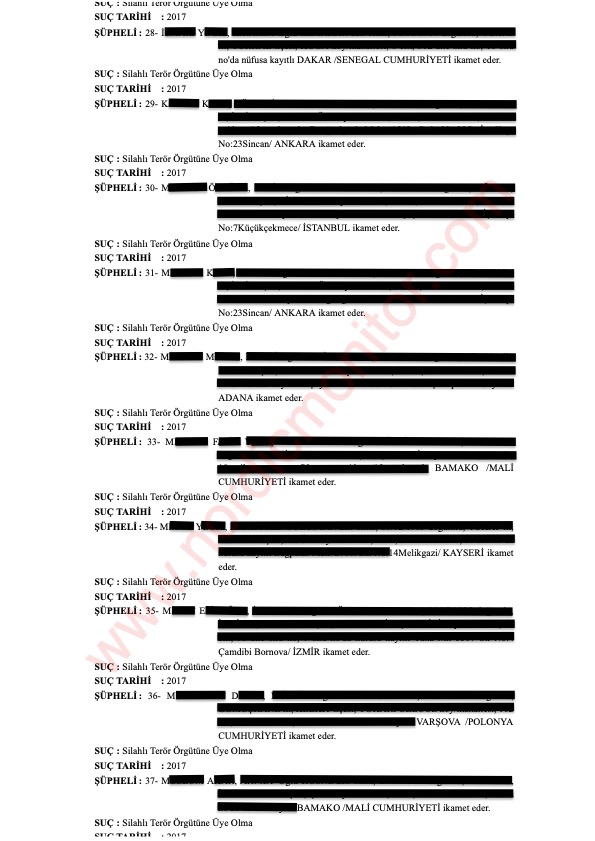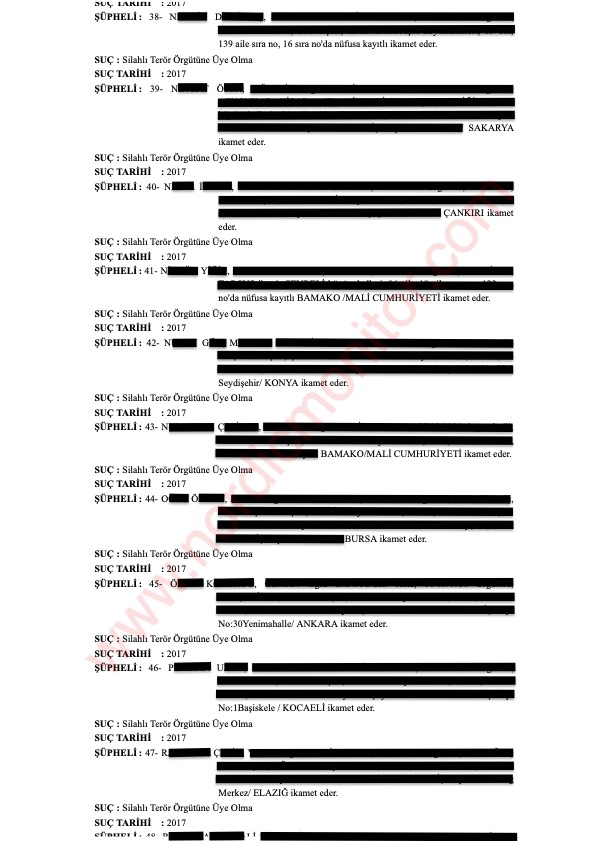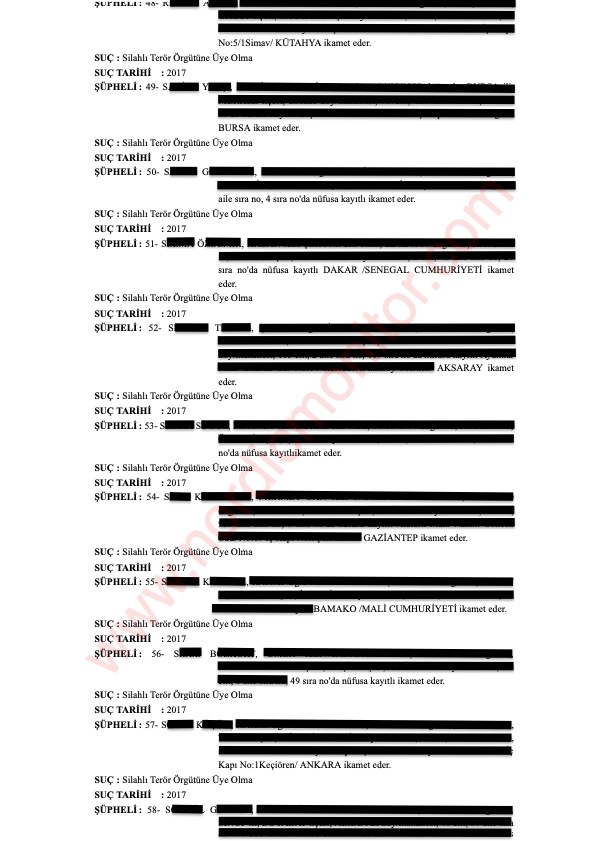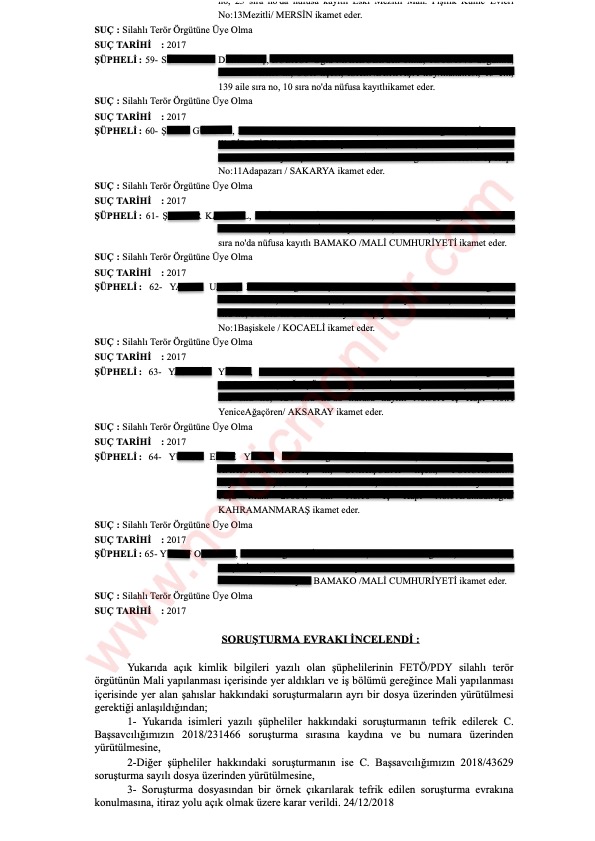Levent Kenez/Stockholm
The Turkish diplomatic mission in Mali engaged in a campaign of intelligence gathering and collected information on the activities of critics of Turkish President Recep Tayyip Erdoğan, judicial documents have revealed.
The information collected by the Turkish Embassy was used in criminal indictments on charges of terrorism by a Turkish prosecutor. According to a December 24, 2018 decision by prosecutor Adem Akıncı, the Ankara Chief Public Prosecutor’s Office launched an investigation (file no. 2018/43629) into 65 Turkish nationals who were profiled by Turkish diplomats in Mali without any concrete evidence of wrongdoing
Judicial documents expose how the Turkish Embassy in Mali triggered criminal investigations in Turkey. (The names and addresses of the Turkish nationals have been redacted for security reasons.):
The profiling files were conveyed to the foreign ministry by Hikmet Renan Şekeroğlu, the Turkish ambassador to Mali between 2014 and 2018.

Critics of the Erdoğan government abroad, especially members of the Hizmet/Gülen movement, have been facing surveillance, harassment, death threats and abduction since President Erdoğan decided to scapegoat the group for his own legal troubles. They have often been denied consular services such as power of attorney and birth registry as well as having their passports revoked. Their assets in Turkey are seized and their family members at home risk criminal charges.
Most recently educator Orhan İnandı, who was included in documents previously published by Nordic Monitor, was kidnapped in Kyrgyzstan on May 31 and illegally brought to Turkey by Turkish intelligence agency MIT. İnandı, who had lived in Kyrgyzstan for nearly 30 years, was arrested July 12 on charges of membership in a terrorist organization.
As previously disclosed by Nordic Monitor, the foreign ministry sent lists of profiled Turkish nationals in two CDs to the Ankara Chief Public Prosecutor’s Office, the national police and Turkey’s intelligence agency MIT on February 19, 2018 via an official document for further administrative or legal action, the punishment of their relatives back in Turkey and the seizure of their assets.
Public prosecutor Akıncı, who received the foreign ministry document on February 23, 2018, forwarded the classified CDs including information on 4,386 Erdoğan critics to the organized crime unit of the Ankara Police Department for further action. The police conveyed the results of its investigations to the public prosecutor.
As a side note, Akıncı, who led the investigation into the assassination of Russian Ambassador Andrei Karlov in December 2016, was accused of suppressing the evidence that the killer had links to various jihadist groups including al-Qaeda and was radicalized by several pro-government imams, including two who worked for the government religious authority, the Diyanet. Nordic Monitor previously reported that several suspects told the court that Akıncı had forced them to testify during interrogation that the assassination was directed by the Gülen movement. They were later jailed after declining the prosecutor’s request to testify to that in court.
Foreign Minister Mevlüt Çavuşoğlu confirmed systematic spying on Turkish government critics on foreign soil as by Turkish diplomatic missions in February, 2020. Çavuşoğlu said Turkish diplomats assigned to embassies and consulates have officially been instructed by the government to conduct such activities abroad. “If you look at the definition of a diplomat, it is clear. … Intelligence gathering is the duty of diplomats,” Çavuşoğlu told Turkish journalists on February 16, 2020 following the Munich Security Conference, adding, “Intelligence gathering and information collection are a fact.”
It is clear that Turkish diplomatic missions violate the domestic laws of receiving states and the principles of international law by conducting unlawful information-gathering campaigns and sweeping intelligence operations. Erdoğan’s diplomats enjoy the privileges and immunities described in international conventions while systematically spying on critics of the president, collecting information on Turks living abroad and transmitting it to headquarters.
The immunities and privileges of diplomats and consular staff are governed by international conventions. However, diplomats enjoying the privileges and immunities described in the Vienna Convention on Diplomatic Relations are under a duty to respect the laws and regulations of the receiving state and to avoid interfering in its internal affairs as detailed in Article 41. Similarly, consular staff are granted limited privileges and immunities by the Vienna Convention on Consular Affairs, but the host state authorities can start investigations and prosecute any of the personnel if they perpetrate crimes inside or outside the consulate premises, according to Article 43 of the convention.

